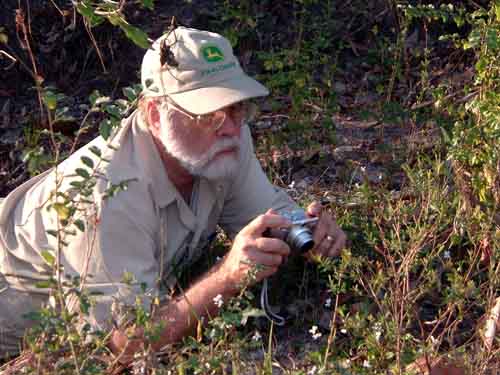2011 High Water – Seven
 es, etc., fallen and ready for a ride when the water reached them. Not so.
es, etc., fallen and ready for a ride when the water reached them. Not so.Why do I call it “high water” instead of flood? Because the old people who lived in this Atchafalaya Basin never saw water as a threat, they saw it as a source of income, of commerce and of communication. At least that is true for those I know. To them a high water was something that came around every ten years or so, and was an inconvenience to be sure, but not a serious threat to life and limb. The people I speak of all lived on houseboats and water was the thing you lived on, as we live on land today. When the water came, you loosened your ropes and rode high for a while, until the water subsided. Oddly enough, it was when the water began to fall that your house was in the greatest danger of sinking. If you didn’t tend the ropes frequently, the house could tilt to such a degree against a bank that water would come in over the side of the barge and fill it up. Of course you wouldn’t lose it, but it was an inconvenience.
The military has arrived in Butte La Rose. The National Guard has a presence now, and seems to be working in conjunction with the sheriff’s personnel. This morning as I drove toward the interstate on my way to Lafayette, there was a checkpoint at what you might call the entrance to Butte La Rose. Two soldiers stood there, weapons across chest, and monitored who could come into the community. If you had proof of residence, you could pass, if not, you were made to turn around. I must admit that the mere presence of those powerful rifles, held at ready, always gives me a feeling of wariness, even though I know they are there to protect me and my property. The men were very polite and respectful, and intent. I am glad they are
 here, and the weapons are necessary, I know.
here, and the weapons are necessary, I know.Late this afternoon we, Carolyn and I, had to go to the far end of Butte La Rose. To those unfamiliar with the community, it is mostly a 14-mile stretch of asphalt highway with residential structures strung along it, sometimes on one side, sometimes on both. So, in traveling the 14 miles we saw pretty much the whole place. It is amazing how vacant it is. People have evacuated trailers, and lifted houses on blocks, and put plastic sheeting around the houses and anchored the sheets with sandbags. They have done all these things to protect property that means something to them, even though a lot of the structures would not be something you would buy. No doubt some of the efforts to save them exceed their monetary value. But to the owners they represent what living in Butte La Rose can do for you - provide solitude, and closeness to big water, and sunrises and birds singing at dawn. Most of all, I think, it is an awayness from the city, any city. It is understandable that people would want to be here. Children who come to this place know that frogs sing loudly, and fish are good to eat, even with bones in them, and outdoor odors are good to smell. In providing these things the sometimes run-down “camps” are worth the cost of saving them from the high water if possible.
The river is at 20. 8 feet on the Butte La Rose gauge, having risen only a little since yesterday. The prediction is still for a great deal of water yet to come, but there are some new and encouraging numbers being published about how high the water might get. Maybe it won’t be as disruptive as we thought. But it’s really too early to tell. So we wait.
Rise and Shine, Jim


2 Comments:
I varnish boats for a living, and lived aboard a boat for a while. "High water" and "low water" describe similar realities in a slightly different context - at least for those not tucked up next to a floating dock.
I suppose I gravitate to places like Butte LaRose because my favorite place to be is "a hundred miles from anywhere". But of course places like Butte LaRose are very particular "somewheres". It seems to me that's why folks struggle so to save camps and trailers and falling down shacks that would have most of my neighbors calling for a bulldozer. They're not trying to save an investment so much as a way of life.
I've seen those new projections. We'll continue hoping.
Well said, Shoreacres. Tnanks for your thoughts.
Post a Comment
<< Home